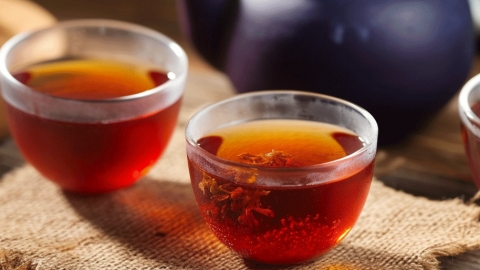What kind of tea is good to drink in winter?
Under normal circumstances, black tea, ginger-date tea, pu'er tea, osmanthus tea, and oolong tea can be moderately consumed during winter. Detailed explanations are as follows:

1. Black Tea
Black tea is warm in nature and sweet in taste, and it helps eliminate greasiness, promote digestion, and stimulate appetite. Drinking black tea in moderation can refresh the mind, enhance cold resistance, and help the body better adapt to winter cold.
2. Ginger-Date Tea
Ginger-date tea is made from ginger and red dates, and has the effects of dispelling cold, warming the stomach, and warming the uterus. Ginger can promote blood circulation, while red dates are rich in iron and vitamins, which can replenish blood and enhance immunity. Ginger-date tea is suitable for individuals with cold body constitution and those prone to colds.
3. Pu'er Tea
Pu'er tea is mild in nature and can regulate internal circulation, lower blood sugar, reduce blood pressure, and lower lipid levels. Additionally, pu'er tea can clear heat and nourish the stomach, relieving dry and cracked lips caused by dry air, making it suitable for winter consumption.
4. Osmanthus Tea
Osmanthus tea is made from osmanthus flowers and tea leaves, and helps lower blood pressure, improve digestion, and warm the stomach. Osmanthus tea can refresh the mind and alleviate fatigue commonly experienced in winter.
5. Oolong Tea
Oolong tea has the effect of moistening the throat and relieving dryness. Winter weather is dry, often causing dry mouth and throat; moderate consumption of oolong tea can alleviate these symptoms.
When drinking tea, one can choose appropriate types based on individual constitution and needs. Drinking tea on an empty stomach should be avoided as much as possible to prevent irritation to the gastric mucosa. Additionally, follow the principle of moderation to avoid excessive tea consumption and maintain good health.






